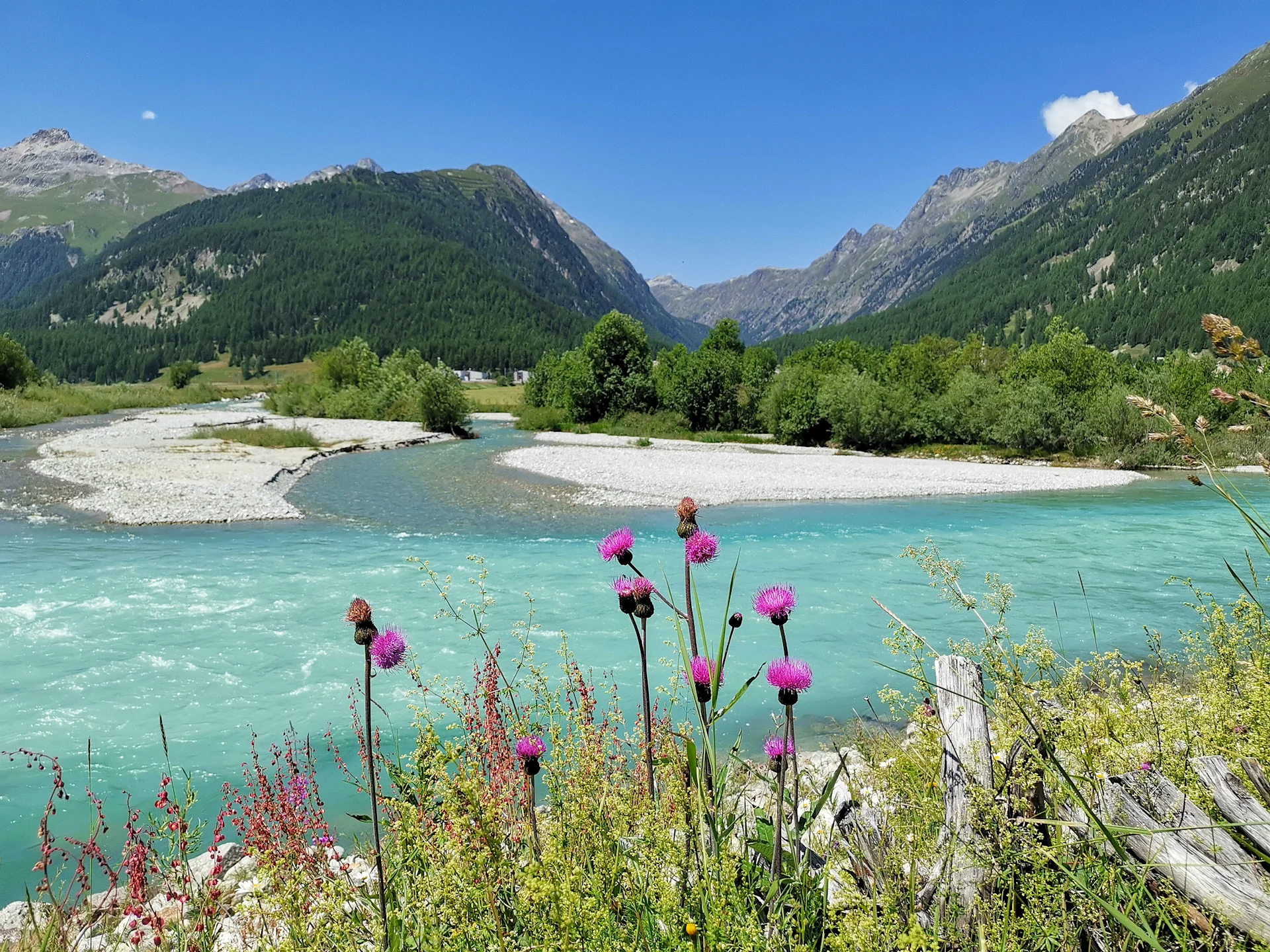
Biodiversity
Back to nature
The example of Bever shows the benefits of renaturation the floodplains. We also present four day trip destinations.
navigation
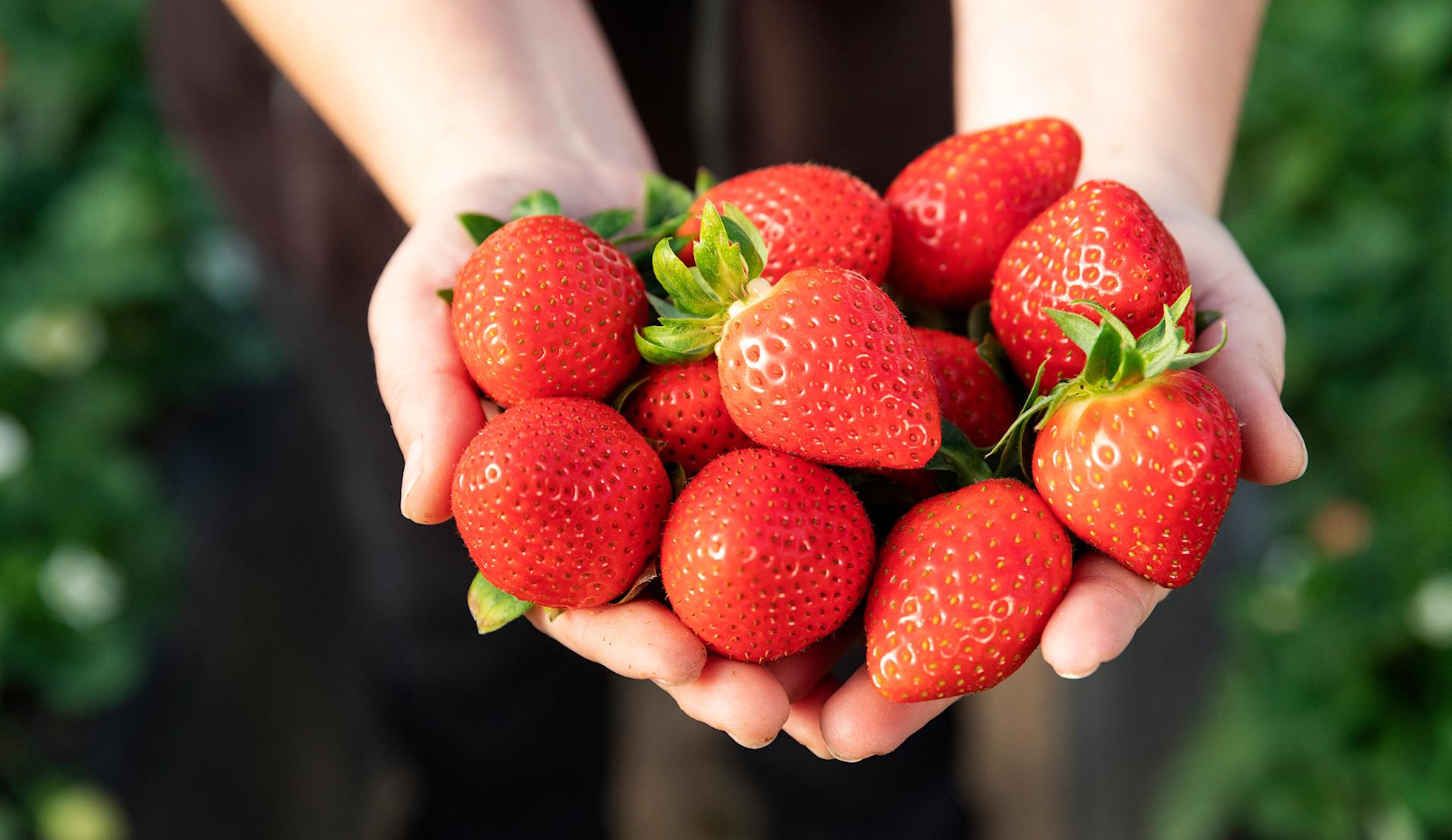
Sustainable products
Since 2019, Migros has been selling strawberries from southern Spain, whose cultivation is subject to strict environmental and social criteria. These requirements contribute to better protection for the pickers and the Doñana National Park, which is directly adjacent to the farms and threatened by drought, also benefits.
The Doñana National Park, a UNESCO World Heritage Site, covers an area of over 500 km2 to the southwest of Seville. This vast wilderness offers shelter to hundreds of bird species that stop off on their migration route or overwinter there. Visitors to the park can admire the flight of black storks, observe deer through the pines or, with a bit of luck, see an Iberian lynx, which has found one of its last refuges there.
However, this little piece of paradise – protected since 1969 on the initiative of Luc Hoffmann, the founder of the WWF – is in danger. Surrounded by farms that export fruit and vegetables all over Europe and whose water consumption is sometimes problematic, it is fighting for its survival. «We think there are about a thousand illegal wells in the area around the park. What happens outside also has an impact on the park itself,» explains Felipe Fuentelsaz from WWF Spain. The environmentalist has calculated that water resources in the park have decreased by 80%. With a government that tends to bury its head in the sand, Felipe Fuentelsaz’s fight is at times reminiscent of Don Quixote’s battle against the windmills.
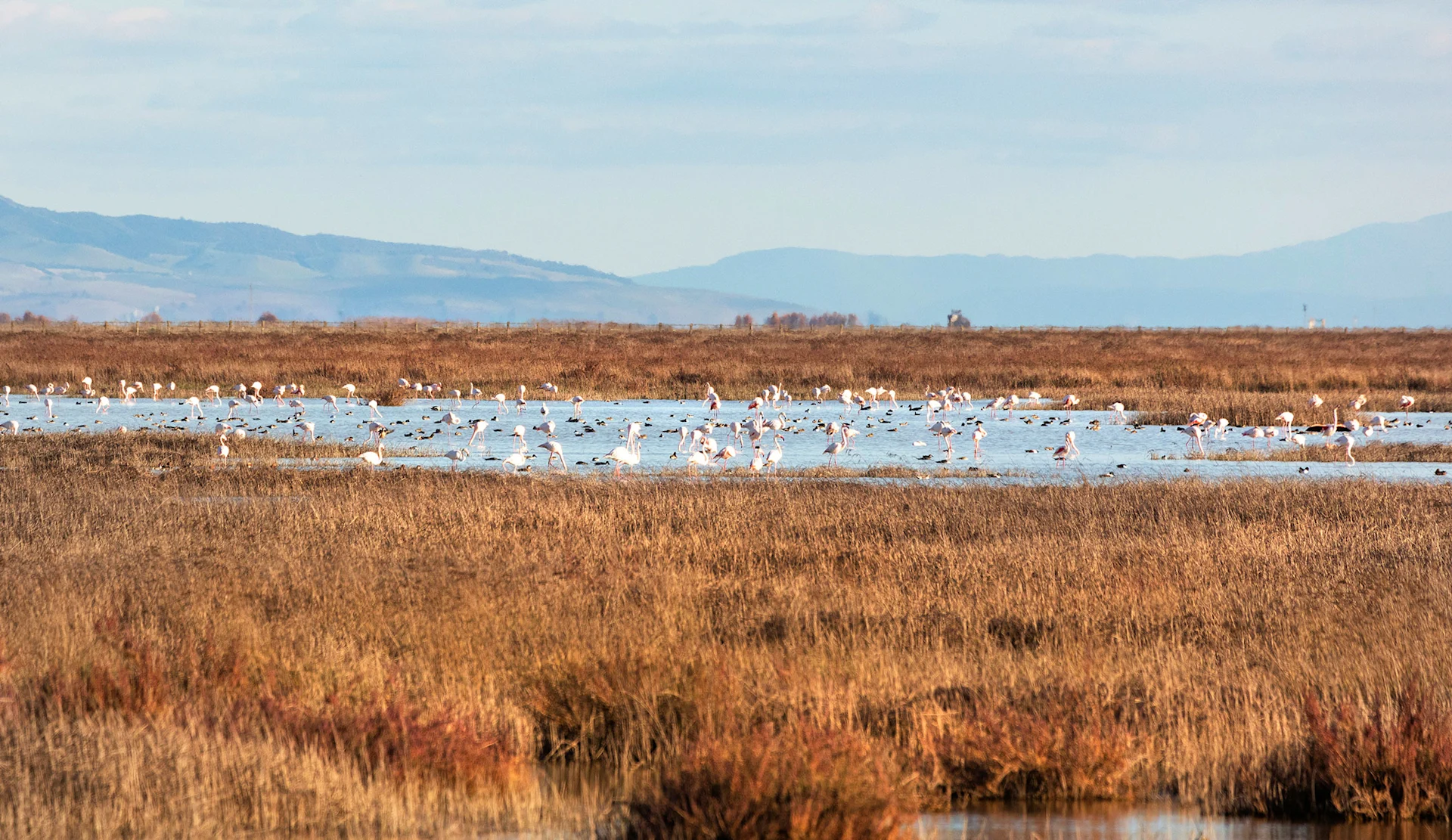
Migros has decided to take action. Not by boycotting Spanish producers – since the fruit is exported throughout the whole of Europe, this would be a meaningless gesture – but by acting locally and supporting local agriculture, which, along with tourism, is a source of income for thousands of workers.
«It’s important to be able to offer customers a healthy alternative to fruit from Swiss stocks in the spring,» explains Erwin Büsser, Head of Fruit and Vegetables at Migros. To get a clear understanding of the production conditions on site, he travelled to Spain together with Thomas Paroubek, Head of Sustainability & Quality Migros. «It’s important that these products come from sustainable agriculture,» explains Paroubek.
With this in mind, Migros launched an ambitious project in 2019 to produce Spanish strawberries grown in an ecologically and socially responsible way. To achieve this, a catalogue of measures was drawn up. It comprises four key aspects: water management, the responsible use of pesticides, soil management and working conditions.
Currently, Migros is working with seven suppliers in Spain who source strawberries from 30 farms and have agreed to implement the stricter Migros standards. They consider the Doñana Park to be part of their collective identity and protecting it is important to them. «This project provides an opportunity to show as many people as possible the efforts we are making,» explains Ivan Perez, Production Manager at Surexport in Almonte and one of Migros' partners.
At the Migros suppliers, strawberries are grown under unheated plastic tunnels to take advantage of the natural greenhouse effect. This is so effective that, thanks to the mild Andalusian climate, the first strawberries are already ripe for consumption in January.
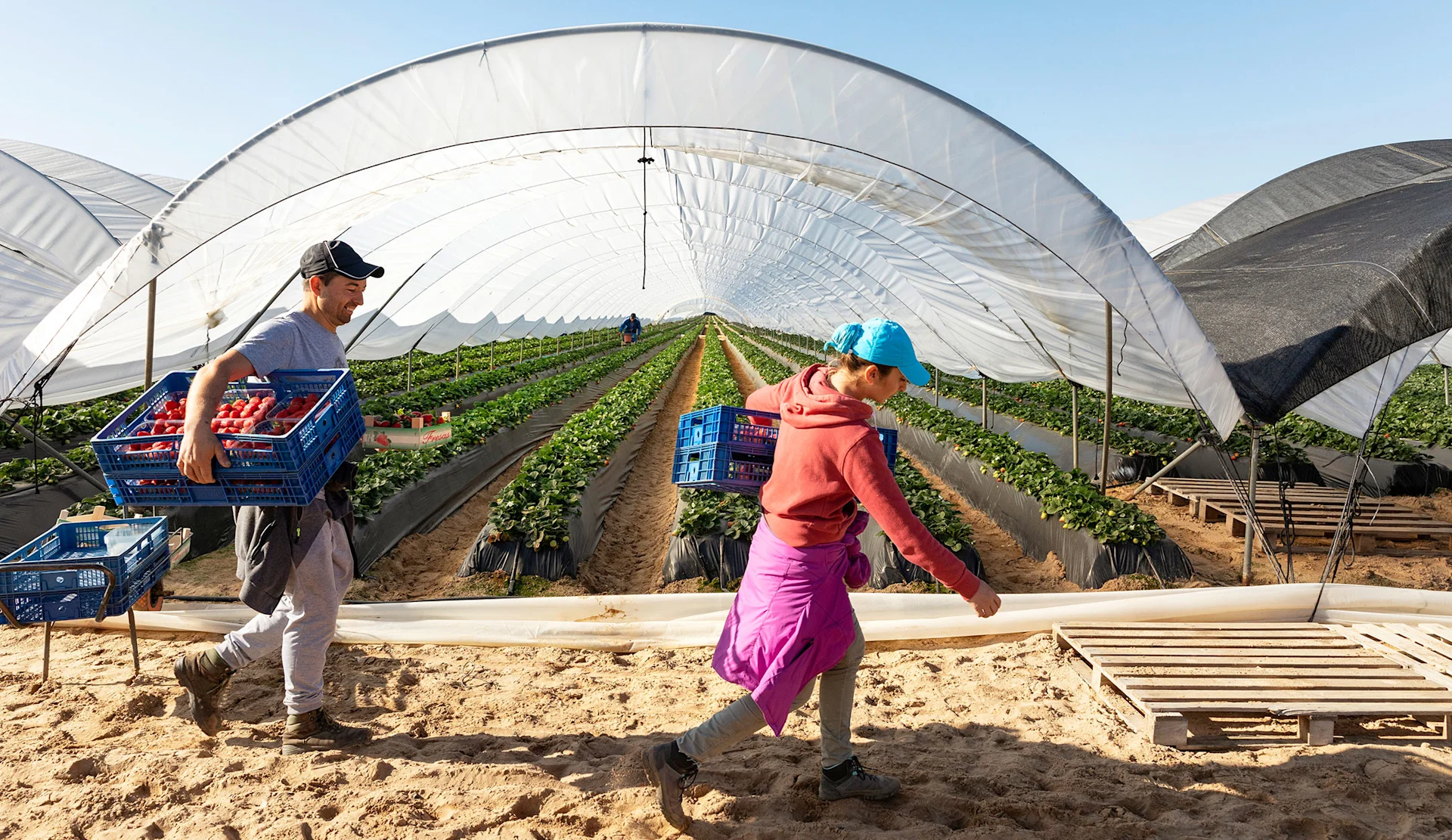
To comply with the new requirements, the farms must reduce their water consumption in particular. This is achieved using sensors that measure the moisture in the soil and provide precise data. Independent experts evaluate the results on a regular basis. «We have to analyse which reductions can be achieved. The level of irrigation depends on the amount of precipitation and varies depending on the season. That’s why this information is very important for setting the targets,» adds Thomas Paroubek.
Binding guidelines also exist for the application of plant protection agents. «The amount of pesticides used and their toxicity will decrease,» promises Ivan Perez. Although the trend is to treat all fields uniformly, more accurate measurements – especially of the amount of spores in the air – should allow the use of fungicides to be tailored to each plot.
In addition, farmers will also intensify the use of organic methods. «The wasp Aphidius colemani, for example, is a beneficial insect that is highly effective against aphids,» says Surexport’s production manager.
Various measures have been defined to promote biodiversity in the fields and curb soil erosion, ranging from the planting of flower strips on the farms to permanent greening of the soil.
«I pick strawberries from January to June. Then I switch to other fruits.»
The programme also involves the local employees. «Round tables with representatives of the trade unions and growers have already taken place», explains Thomas Paroubek. At these meetings, participants are informed about labour laws, compensation for overtime and safety in the fields. Training and workshops are also offered for growers in collaboration with Foros Comercio Etico (Ethical Trade Forums). Ivan Perez welcomes this dialogue. «One of our main problems is the large turnover in seasonal workers. If these discussions allow us to retain workers, we will all benefit.»
Nicoleta David Nanu is one of these reliable harvesters. The young woman of Romanian origin has been working in Spain for almost 15 years. «For the first three years, I was a seasonal worker. Then I was able to sign a permanent contract. I pick strawberries from January to June and then switch to other fruits, like raspberries.»
The strawberries that Nicoleta David Nanu and the 4,000 other harvest workers pack directly into boxes are transported by truck to Switzerland, where they arrive on the Migros shelves after two to three days, just like numerous other fruits and vegetables. «This method of transport has only a small impact on the overall carbon footprint of the fruit, namely just 1 to 5%,» explains Erwin Büsser.
Find out more in the podcast «Chrut und Rüebli»
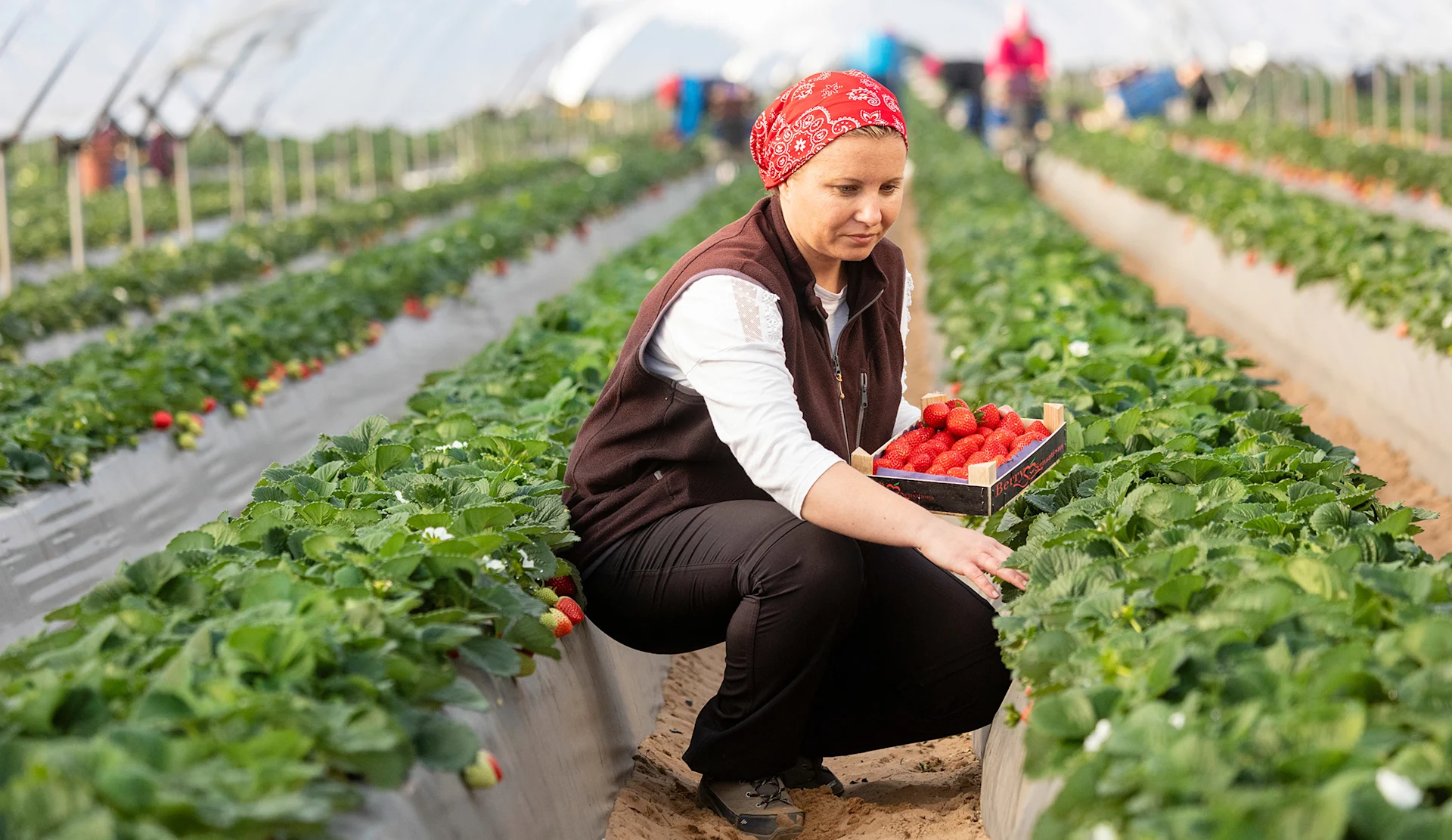
With both protected areas and farms, the south of Andalusia is home to a conservation area of international importance and the vegetable garden of Europe. The farms involved in the Migros programme are located in Moguer and Almonte, not far from the Doñana National Park.
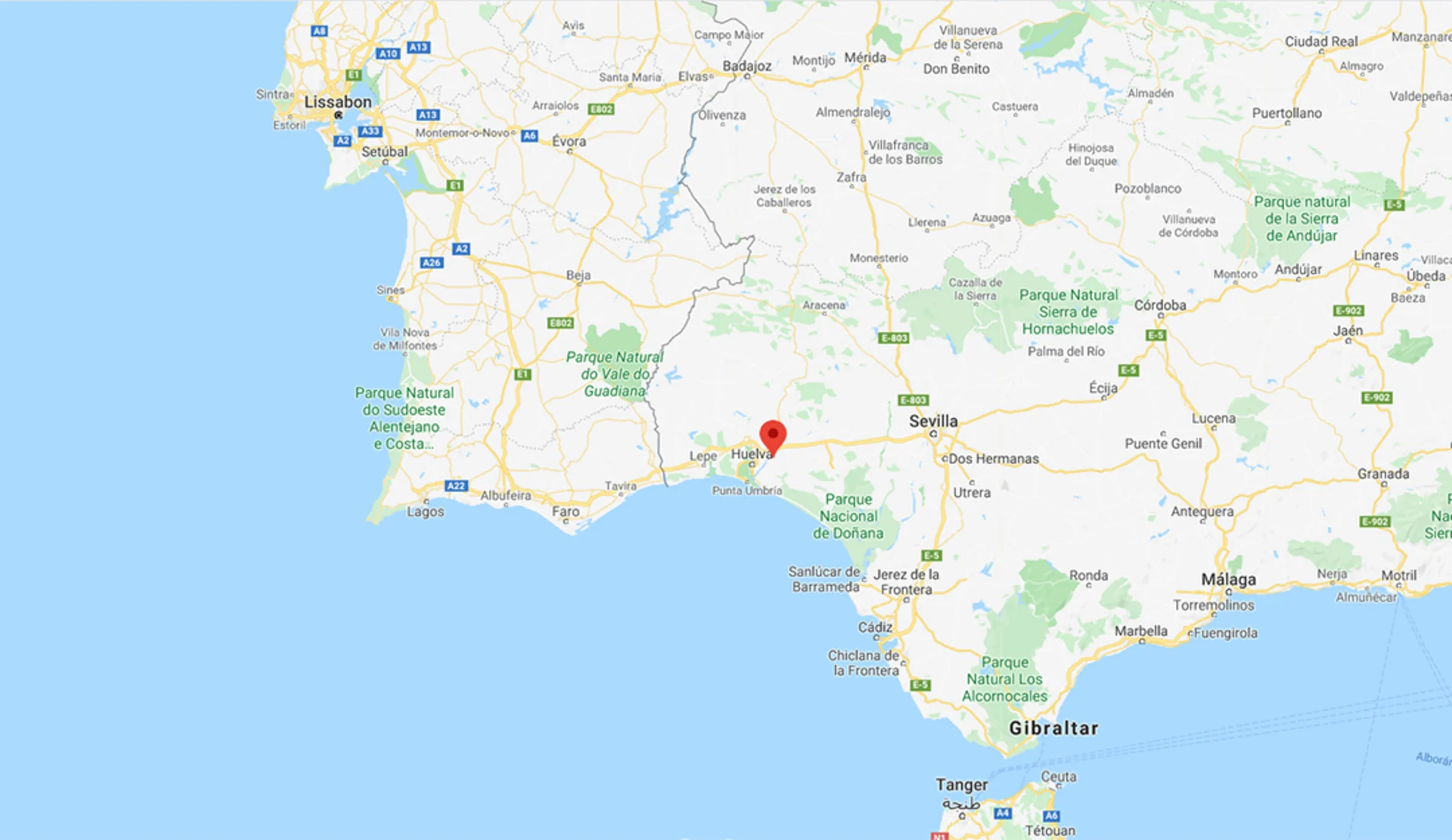
Since 2022, Migros has been sourcing the majority of its strawberries from Spanish producers who meet the following sustainability requirements.
Exact recording of water consumption using precise measuring methods and saving water with drip irrigation.
Reduced water pollution thanks to strict controls and better treatment.
Plants with good root penetration stabilise the soil and thus prevent erosion.
Exclusive use of legally developed cultivation areas.
Creation of wildflower strips and places of retreat for animals."
Increasing use of biological methods such as pest control using beneficial organisms.
Specifications for the use of less environmentally harmful pesticides.
Optimised and targeted use of pesticides."
Dialogues and round tables with trade unions and growers.
Training and workshop offers for growers in collaboration with Foros Comercio Etico.
Optimisation of work safety, accommodation and grievance mechanisms.
Preventive measures against accidents and harassment in the workplace.
Informing employees and raising their awareness of their rights.
Promoting respectful interaction in the workplace.
Promoting biodiversity: we can't do it on our own. Play your part now and protect Switzerland's biodiversity together with us!